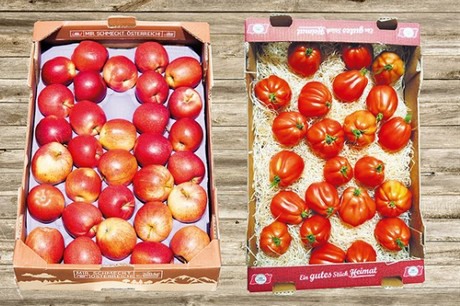From now on, all unpackaged Austrian apples in the Austrian Lidl branches are presented on preformed cardboard holders. Beef tomatoes are available on environmentally friendly wood wool. This saves up to 5 tons of plastic waste per year. In addition, Lidl Austria is testing the use of laser technology in the labeling of avocados. 
Lidl Austria is pursuing ambitious goals in the reduction of plastic packaging. Recently, two new measures for fruit and vegetables are in use. All loose apples from Austria are no longer plastic. The so-called "inlays" are now made of 100% cardboard. Lidl Austria also relies on environmentally friendly wood wool for the beef tomatoes. "Previously, the inlays were all made of plastic. This need not be. With these two changes, our fruits and vegetables are a little bit more environmentally friendly again. Meanwhile, we have already implemented many smaller and larger measures. We are already saving almost 60 tons of plastic per year now," says Christian Schug, CEO of Lidl Austria.
In addition, Lidl Austria is currently testing the use of laser technology in the labeling of avocados. "The labels come directly to the bowl by laser and the fruits are instantly recognizable as organic even without labels. Packaging is therefore no longer necessary," continued Schug.
Plastic fruit bags on the way out
Lidl Austria focuses on the prevention and reduction of packaging materials in various areas. "As early as March of this year, we were the first to introduce biodegradable fruit and vegetable bags nationwide. In addition, we soon also offer reusable nets for the purchase of loose fruits and vegetables. Even for our own brands, we do not use plastic packaging, if possible. However, packaging is sometimes important, for example, to protect food during transport or to separate organic products from conventional goods. The subject of plastic packaging is generally quite complex. It is about holistic solutions. That's why we work together with stakeholders all along the entire value chain," says Schug.
